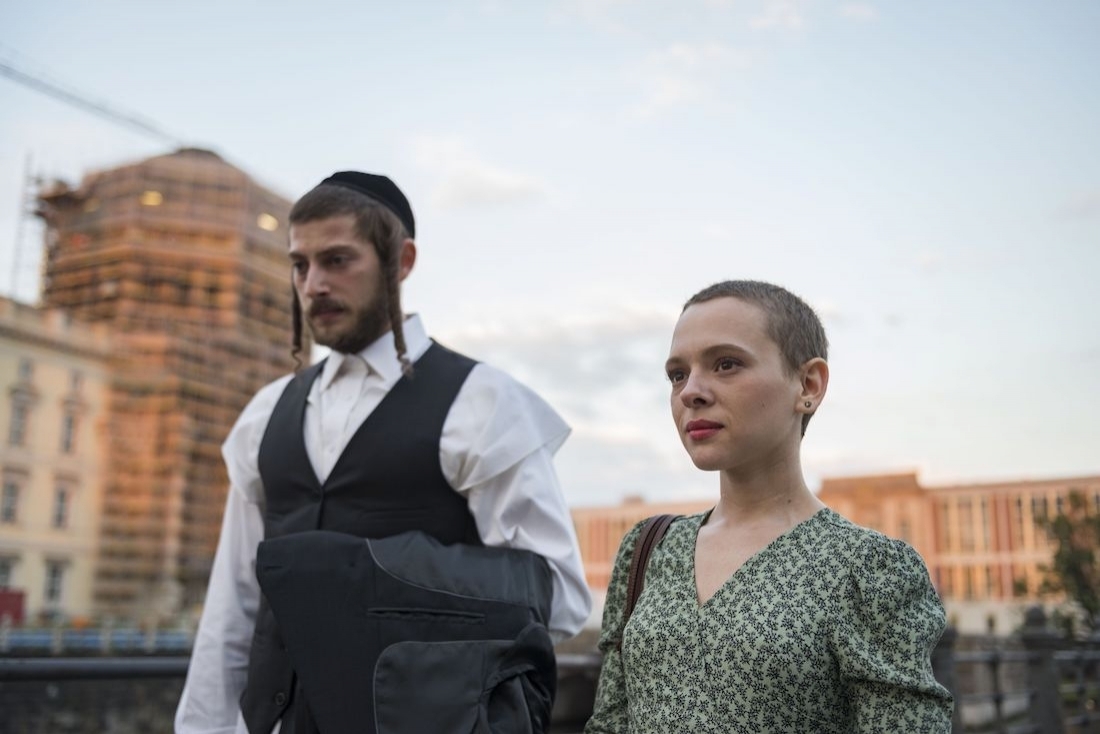

Orthodox is not a term one usually associates with Brooklyn, let alone New York -- it is the city for dreamers after all. It almost feels like a violation of some unwritten set of rules, using the words ‘orthodox’ and ‘New York’ in the same sentence but it is exactly what Maria Schrader’s mini series Unorthodox does, bringing the two together almost like a mirror image. Based loosely on the memoir of Deborah Feldman, the series follows the life of a young nineteen year old Esty (Shira Haas) who takes piano lessons in secret, on her journey to find liberation from her very traditional and intrusive Hasidic roots. Amidst it’s hipster culture, sprightly nightlife and indie rock roots, Williamsburg is also home to the Satmar Jews whose origins lie in Hungary. The Hasidic community majorly includes descendants of Holocaust survivors who set base in New York post the war.
Anna Winger and Alexa Karolinski’s deeply sensitive screenplay never once attempts to villainise the people or simply write them off as inhumane. The community saddled by its own trauma is simply trying to do good by the millions lost, by producing more and increasing their numbers. Maria’s lens further captures Esty’s pain and fear well. It’s palpable as she’s running away to Berlin with nothing but her clothes as a reminder of her origin and some money on her. Yet, she chooses to take her grandmother’s photo along, the one who practically raised her. It establishes how she hasn’t completely rejected her roots just yet. She wishes to leave them behind but can’t completely give up on her emotional bonds.
The narrative technique binds together the present and the past, moving in and out of timelines, deconstructing the year of marriage Esty went through before finally deciding to run away. Like a tale as old as time, women are put forward as the faces that perpetuate oppressive practices: it’s the local doctor who realises Esty might be suffering from vaginismus but insists she go ahead with intercourse however painful it may be, her husband’s mother continues to intrude in on their personal life forcing her to make her son feel like a 'king' and pressurises her to procreate, or even her aunt, who refuses to let her visit her home to seek some solace. The premise becomes so stifling for Esty that it becomes only natural for her to run away. The writers cleverly weave the personal and communal together, the tradition that gradually breaks down Esty’s individuality.
Berlin makes its presence felt as a utopian dream in the narrative as Esty by chance runs into a group of students studying music at a prestigious academy, all from different religions and backgrounds, coexisting harmoniously together. What follows is a modestly dressed Esty who finds herself in the middle of the Wannsee lake, not far from where the decision of the Final Solution was made and as she’s knee deep in the waters where the ghosts of her history are closest to her, the lens beautifully captures the moment she gives up on her wig and finally feels free. As the religious connotations run deep through the scene, one rather makes note on the gusto of emotions that pass through Esty. From that moment on, she’ll be on the path she decides for herself. It’s exhilarating to witness such a moment especially, as a female viewer.
Netflix’s first show in Yiddish, Unorthodox is truly an engaging watch that can easily be consumed at one go and gives it’s viewers a lot to ponder upon!Text Unnati Saini